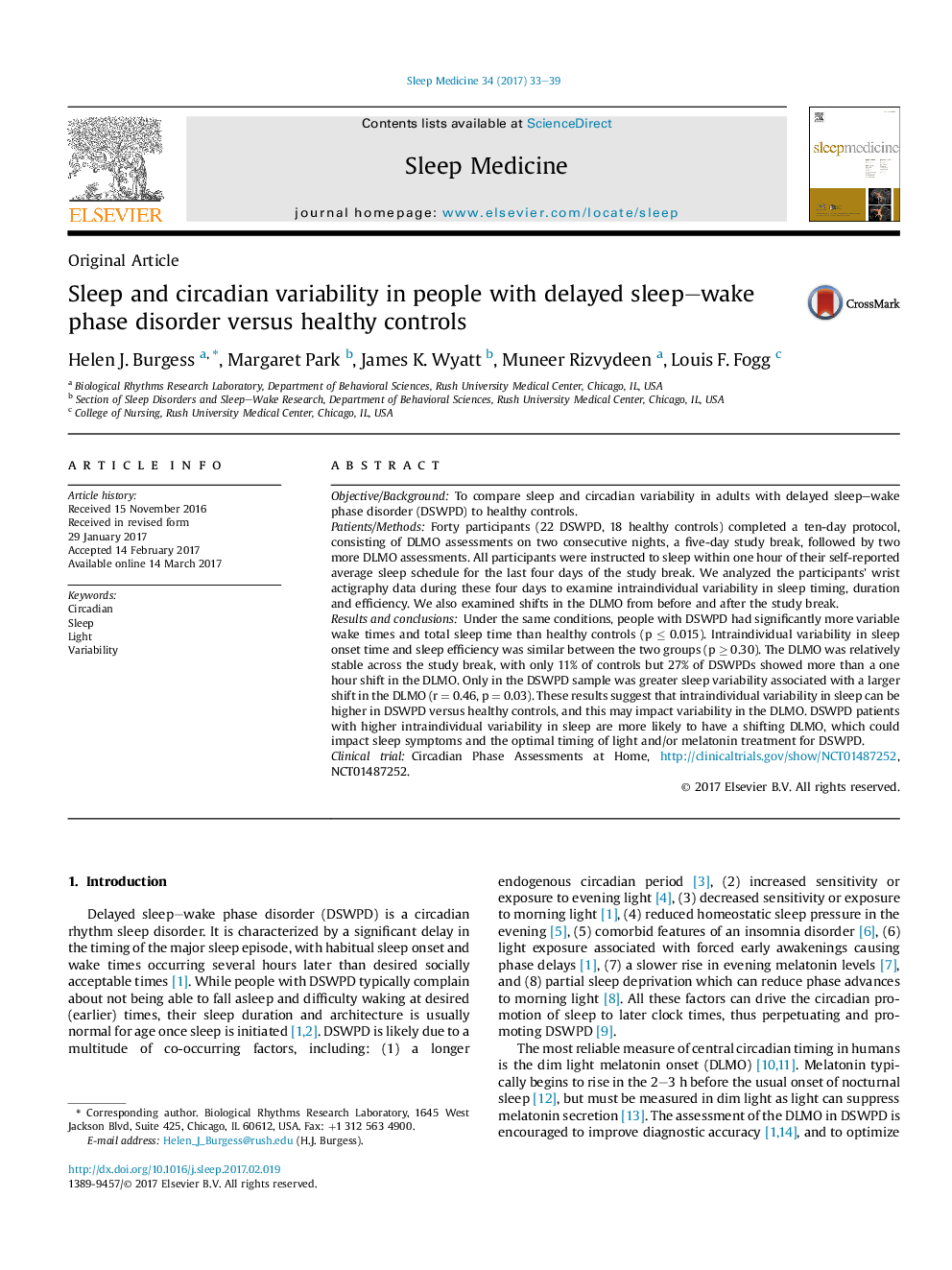| کد مقاله | کد نشریه | سال انتشار | مقاله انگلیسی | نسخه تمام متن |
|---|---|---|---|---|
| 5643698 | 1586475 | 2017 | 7 صفحه PDF | دانلود رایگان |
- Delayed sleep wake phase disorder is associated with greater sleep variability.
- Greater sleep variability may contribute to greater variability in circadian timing.
- When treating delayed sleep wake phase disorder consider sleep variability.
Objective/BackgroundTo compare sleep and circadian variability in adults with delayed sleep-wake phase disorder (DSWPD) to healthy controls.Patients/MethodsForty participants (22 DSWPD, 18 healthy controls) completed a ten-day protocol, consisting of DLMO assessments on two consecutive nights, a five-day study break, followed by two more DLMO assessments. All participants were instructed to sleep within one hour of their self-reported average sleep schedule for the last four days of the study break. We analyzed the participants' wrist actigraphy data during these four days to examine intraindividual variability in sleep timing, duration and efficiency. We also examined shifts in the DLMO from before and after the study break.Results and conclusionsUnder the same conditions, people with DSWPD had significantly more variable wake times and total sleep time than healthy controls (p â¤Â 0.015). Intraindividual variability in sleep onset time and sleep efficiency was similar between the two groups (p â¥Â 0.30). The DLMO was relatively stable across the study break, with only 11% of controls but 27% of DSWPDs showed more than a one hour shift in the DLMO. Only in the DSWPD sample was greater sleep variability associated with a larger shift in the DLMO (r = 0.46, p = 0.03). These results suggest that intraindividual variability in sleep can be higher in DSWPD versus healthy controls, and this may impact variability in the DLMO. DSWPD patients with higher intraindividual variability in sleep are more likely to have a shifting DLMO, which could impact sleep symptoms and the optimal timing of light and/or melatonin treatment for DSWPD.Clinical trialCircadian Phase Assessments at Home, http://clinicaltrials.gov/show/NCT01487252, NCT01487252.
Journal: Sleep Medicine - Volume 34, June 2017, Pages 33-39
